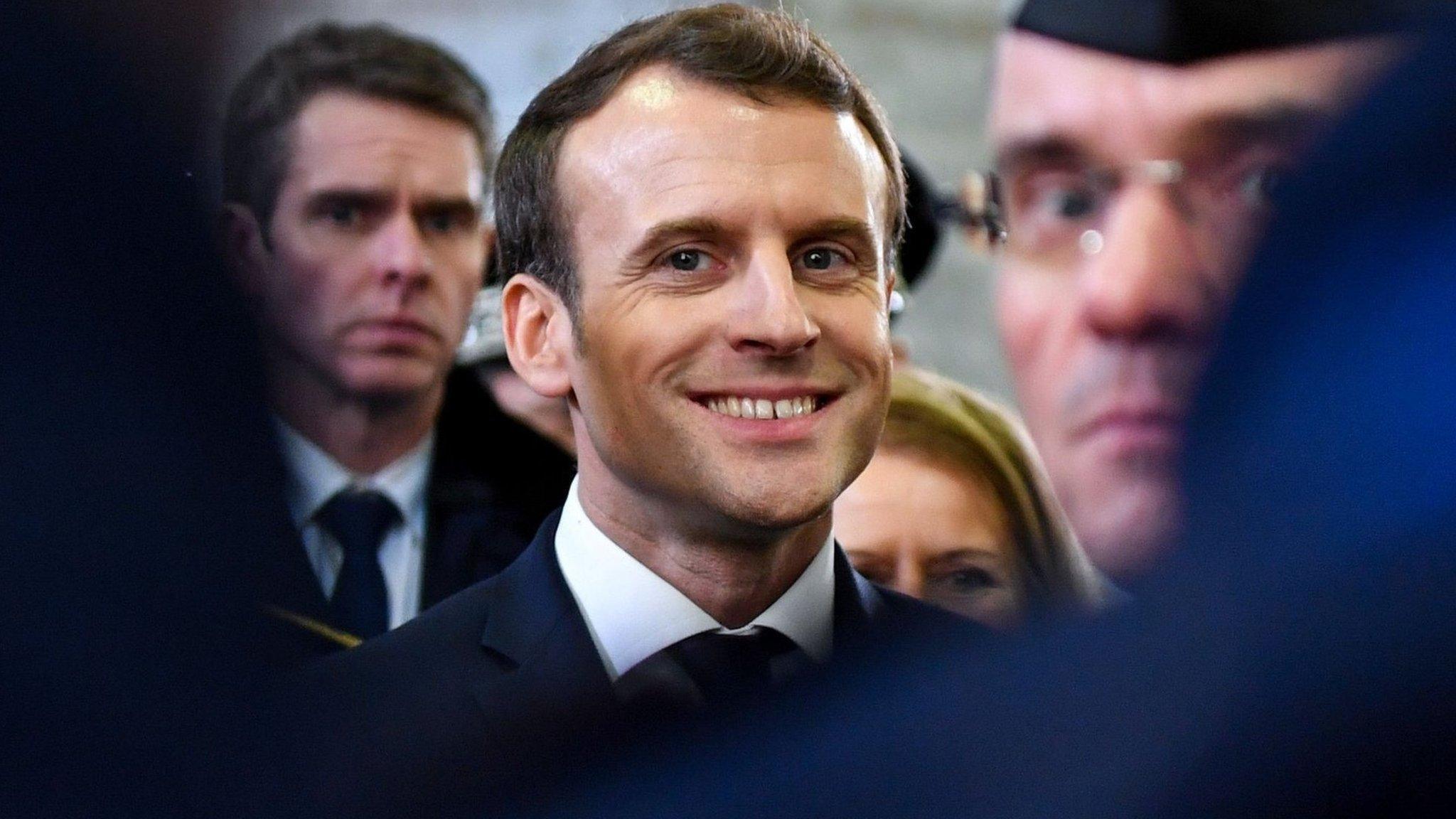Emmanuel Macron calls for 'EU renaissance' ahead of polls
- Published
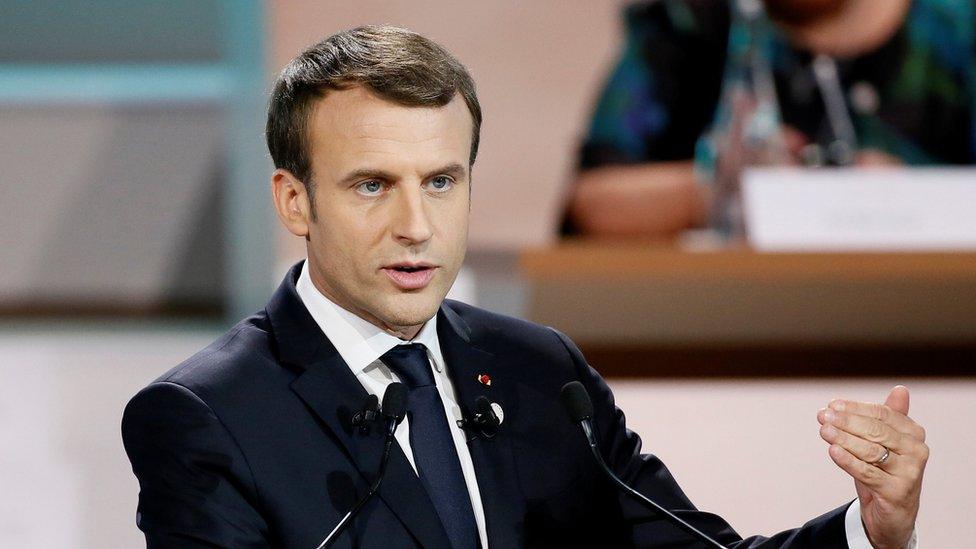
Emmanuel Macron has published an open letter to Europe in newspapers across the continent
French President Emmanuel Macron has proposed a series of reforms to ensure the future of the European Union.
In an opinion piece published in newspapers across Europe, he calls for the creation of an agency to protect the bloc against cyber-attacks, external.
Ahead of May's European elections, he advocates a ban on foreign powers financing European political parties.
And he suggests the British people were not properly informed before voting to leave the EU.
Mr Macron set out his proposals for a "European renaissance" in an open letter addressed directly to the "citizens of Europe", which was published in newspapers in all 28 EU member states.
In his letter, Mr Macron says the EU as an institution needs a major shake-up if it is to stop member states "retreating into nationalism" - a direct reference to Brexit.
"Who told the British people the truth about their post-Brexit future?" he asks, using the UK's withdrawal from the union as an example of the EU being in crisis. "Who spoke to them about losing access to the EU market? Who mentioned the risks to peace in Ireland of restoring the border?"
He describes the EU as "not just an economic market" but a "project", before going on to set out his "roadmap for the EU".

In a nutshell: what Macron is proposing?
In his open letter to Europe, Mr Macron proposes the creation of several new bodies that would oversee change within the EU. They are:
European Agency for the Protection of Democracies, to protect against cyber attacks, the spread of fake news, and to ban foreign powers from funding European political parties
European Council for Internal Security, which would comprise a Europe-wide border force agency and asylum office, and a European security council that would have "the UK on board"
An EU minimum wage, which would be "appropriate to each country" and negotiated collectively on an annual basis, and a guarantee that EU citizens would get "the same pay for the same work"
European Climate Bank, which would finance the EU's transition to his suggested environmental targets, "zero carbon by 2050 and pesticides halved by 2025"
A European food safety force, to "improve our food controls" and protect them from the "lobby threat" with "independent scientific assessment of substances hazardous to the environment and health"
A Conference for Europe, which Mr Macron wants the EU to set up by the end of this year, so that changes can be proposed and approved by representatives from EU institutions and member states

Why now?
By Hugh Schofield, BBC News, Paris
For months President Macron has been forced to concentrate on home affairs, thanks to the "gilets jaunes" (yellow-vest) movement. But that crisis is waning.
So now, with EU elections approaching in May, is the moment to fire an opening salvo in that campaign, and return to his big theme of European renewal.
We have been here before. Before his election he campaigned under a blue European flag, and in his Sorbonne speech of September 2017 he promised a new era of Franco-German unity at the heart of an invigorated EU. The results have been, to say the least, disappointing.
Now he is back with more of the vision thing, but this time observers detect a shift.
Today the focus seems to be more on protection, defence and borders - rather than economic and social convergence; and more on intergovernmental cooperation, rather than federalism. A nod perhaps to the power of his foes, and their "populist" rationale.

What he wants in detail
First, Mr Macron says a new European Agency for the Protection of Democracies should be set up to provide each member state with experts who can protect their election processes from cyber-attacks, and manipulation from foreign powers.
"Our first freedom is democratic freedom," he writes. "The freedom to chose our leaders as foreign powers seek to influence our votes at every election."
He then adds that "we should also ban the funding of European political parties by foreign powers".
This is seen as a reference both to claims of Russian links to elements of the Brexit campaign, and to the controversy over Russian financing of the far-right French political party, National Front.
As well as this, the French president says, the EU should bring in rules "banishing incitement to hatred and violence from the internet".
He also says the EU should write up a new treaty of defence and security, and set up a European security council, which would include the UK.
In 2017, France said it had been targeted by 24,000 cyber-attacks in a year - and warned that it could be hit by a campaign like the one thought to have targeted the 2016 US election.
And the European Innovation Council, which already exists, should be given a larger budget "on a par with the United States" in order to support research into new technologies, such as artificial intelligence (AI).
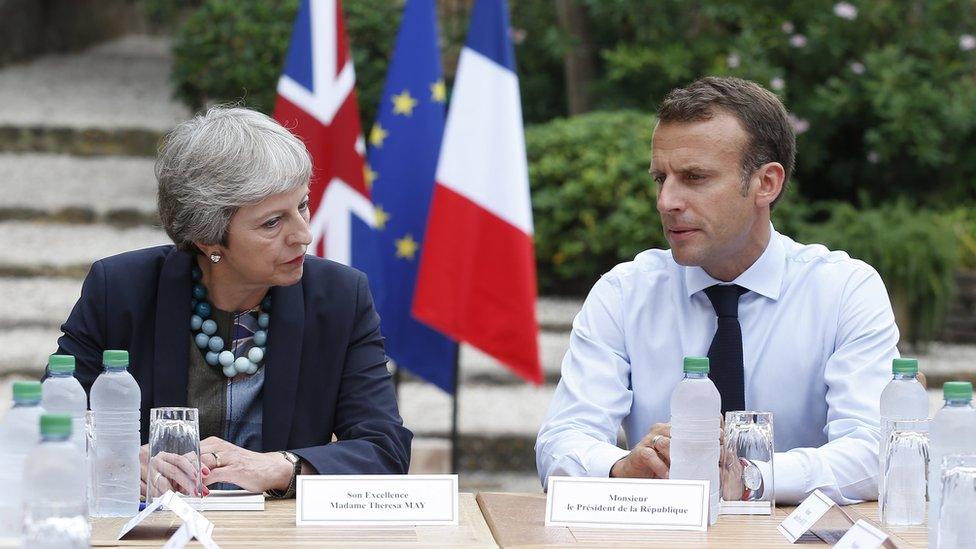
Using Brexit as an example, Mr Macron warns against letting EU member states "retreat into nationalism"
A single asylum policy
Mr Macron then goes on to say that those who want to belong to the visa-free Schengen area should accept both stricter controls on outer borders, and a common asylum policy for migrants.
At the moment, different Schengen member states are able to have wildly different policies on asylum and immigration.
Germany, for instance, accepted about 1.2 million asylum seekers during the 2015-16 crisis, while Hungary passed a law criminalising lawyers and activists who helped asylum seekers.
"We will need a common border force and a European asylum office, strict control obligations and European solidarity to which each country will contribute under the authority of a European Council for Internal Security," he writes.
'Europe, where social security was created'
The French president then suggests bringing in new social security measures for EU citizens, including a new "EU minimum wage" that would be "appropriate to each country, negotiated collectively every year".
He also says that the EU should have a "social shield" that would guarantee that workers doing the same job get the same pay.
"[Europe] needs to drive forward a project of convergence rather than competition," he adds.
Mr Macron also proposes new EU-wide environmental targets - "zero carbon by 2050 and pesticides halved by 2025" - which would be financed by a new European Climate Bank.
A new "European food safety force" would enforce the EU's food controls, while funding independent scientific research to combat the influence of corporate lobbies.
"We can't let nationalists with no solutions exploit people's anger," he concludes. "We can't sleepwalk to a diminished Europe... European humanism demands action."
- Published27 February 2019
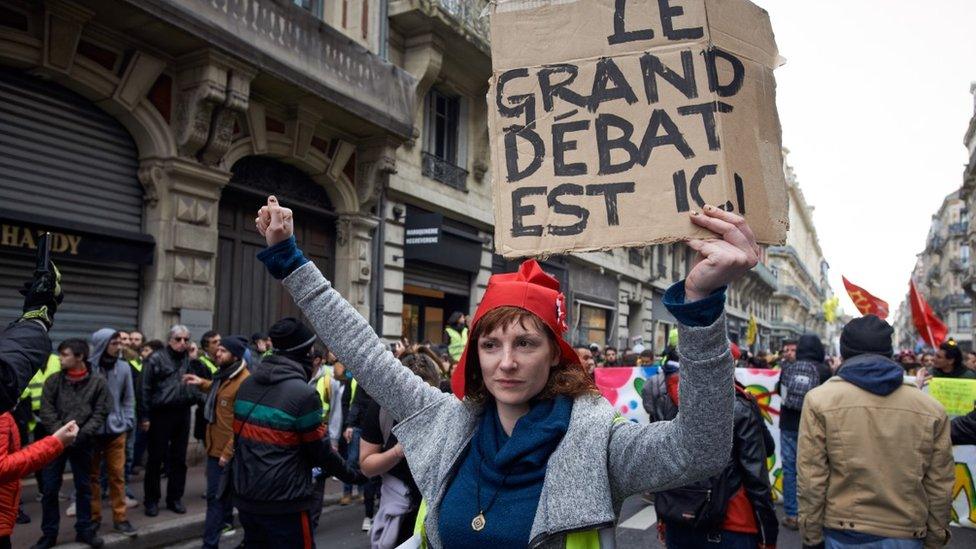
- Published21 February 2019
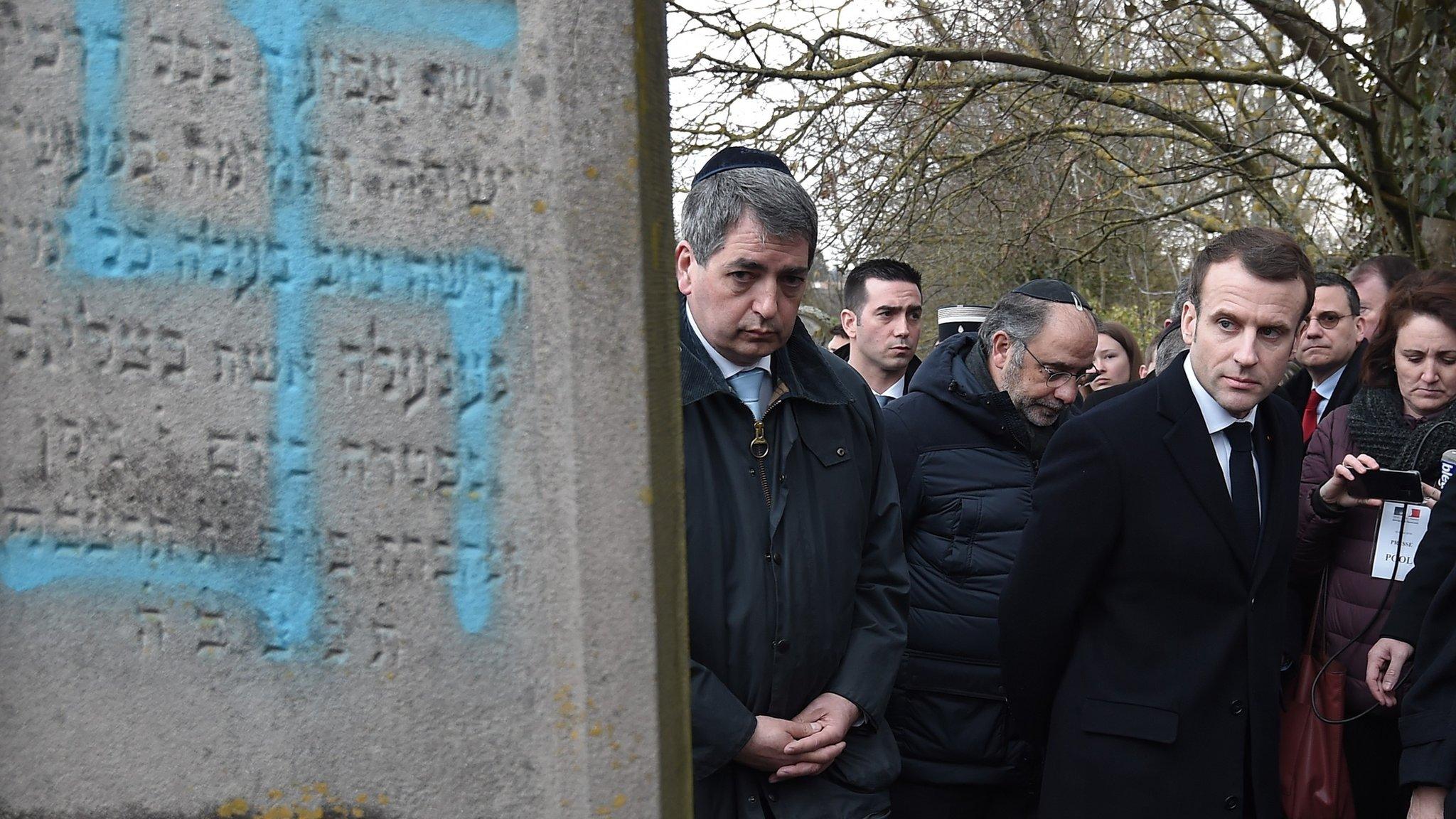
- Published19 February 2019
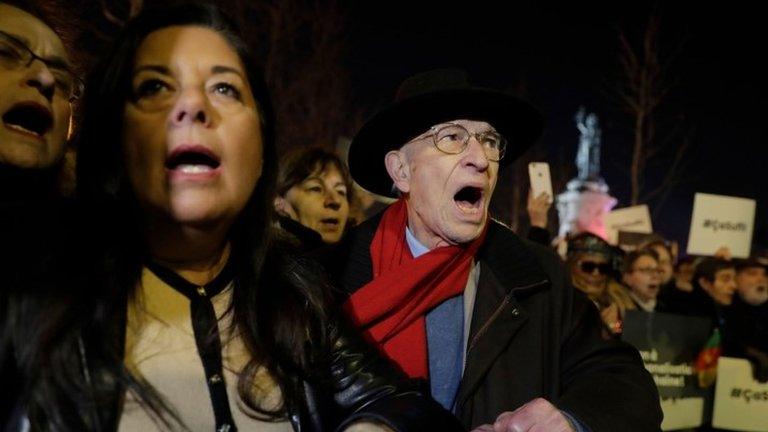
- Published19 February 2019
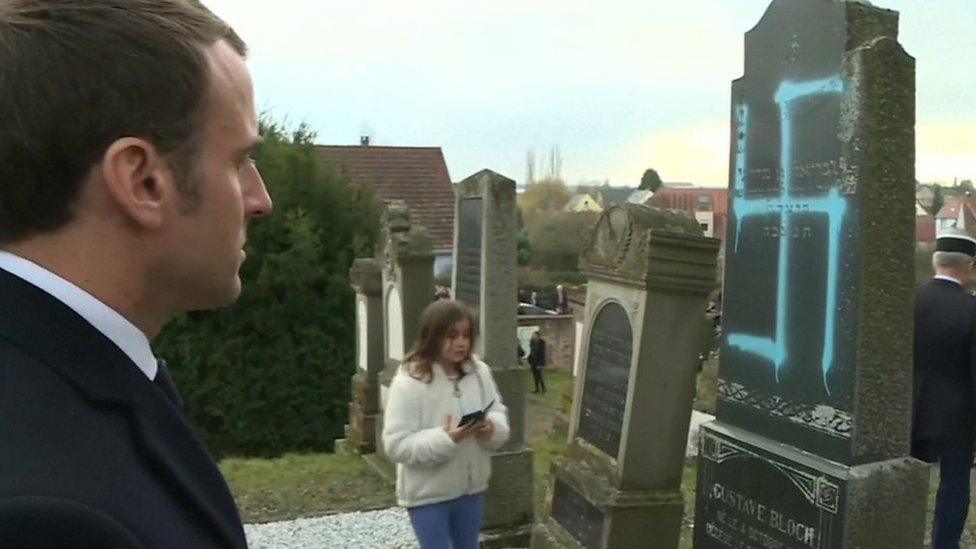
- Published18 February 2019
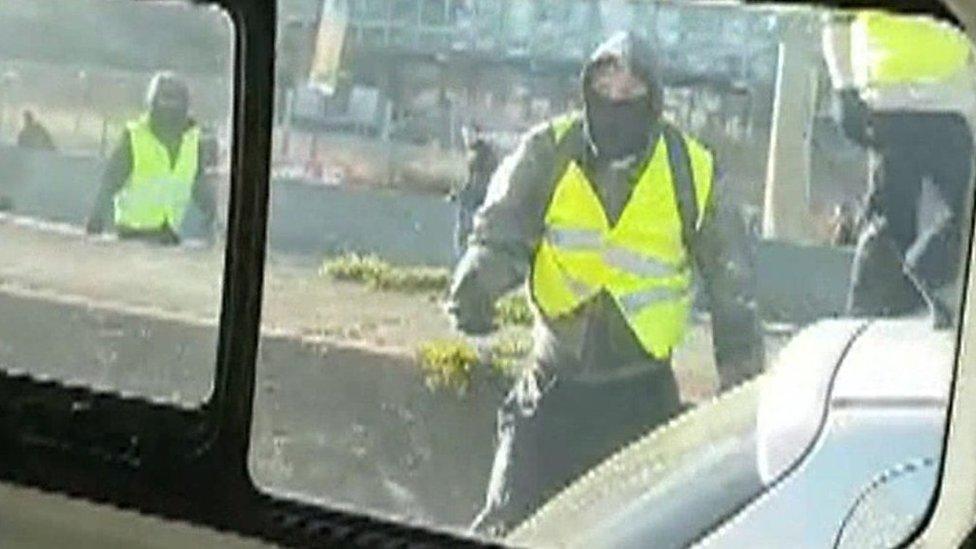
- Published20 January 2018
